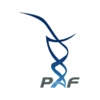| Research Studies in Propionic Acidemia |
| Dr. Jan Kraus’ laboratory, Dept. of Pediatrics, University of Colorado School of Medicine – Update 11/2011
Propionic acidemia (PA) is a serious life threatening inherited disorder of metabolism. The disease is caused by deficiency of an enzyme called Propionyl CoA Carboxylase or PCC for short. PCC is a large enzyme consisting of six alpha and six beta subunits. The enzyme deficiency in turn is caused by mutations in either the PCCA or PCCB gene. My laboratory is currently supported by PAF for two projects associated with this disease. The first project deals with the determination of the mutations or inherited changes in the DNA of propionic acidemia patients from USA whose DNA samples have been submitted to the Corriell Institute. Most of these patients are members of the PA foundation. Knowing the mutations will lead to better understanding of the disease and lead to improved treatment for the affected patients. We will also determine which of the two mutations in each patient came from which parent. This determination, in turn, will enable diagnoses of mutation carrier status in both parents’ families. The second project is entitled Enzyme Replacement Therapy for Propionic Acidemia. The main objective of this research proposal is to develop a therapeutic treatment of propionic acidemia (PA) by enzyme replacement therapy. Hurdles with enzyme replacement therapy include the delivery of the active enzyme into the patient cells as well as directing it to the correct location within the cell. In the case of PCC it needs to be delivered to the mitochondria. The mitochondria are separate membrane enclosed organelles within the cell that mainly supply the energy for cells. One promising way to deliver the PCC subunits across both the cell and mitochondrial membrane is the use of what is known as the TAT peptide. This peptide can cross cellular membranes and will also take along anything that is attached to it. Thus we propose to use the TAT peptide and a mitochondrial targeting sequence as a way to deliver the functioning PCC subunits to cells. The peptide and the targeting sequence will then be removed from PCC by another enzyme already present in mitochondria. None of this work would have been possible without generous support from the Propionic Acidemia Foundation. Please give money to the foundation to support these and other studies on this devastating disease.
Update 10/2010 “This project deals with the determination of the mutations or inherited changes in the DNA of Propionic Acidmia patients from USA whose DNA samples have been submitted to the Coriell Institute. Most of thse patients are members of the PA Foundation. Knowing mutations will lead to better understanding of the disease and lead to improved treatment for the affected patients. We will also determine which of the two mutations in each patient came from which parent. This determination, in turn will enable diagnoses of mutation carrier status in both parents’ families.” |
